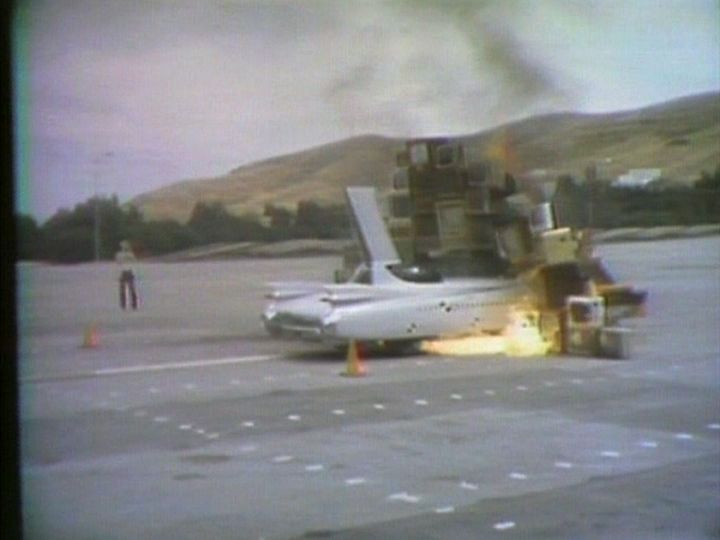Media Burn

Original format
Color
Color system
Languages
Availability
In Media Burn, the multidisciplinary collective Ant Farm completely unmasks the power and effects of the media. In order to free America from its television addiction, as the “artist president” announced in the videos, a performance is organised for Independence Day 1975: Ant Farm staged the collision of a car and a stack of televisions. The recording of the performance, which later included postcards and the publication of photographs in art magazines, is focused on a video documentary, but the event drew hundreds of journalists which multiplied the critical impact of the performance. The documentary opens with reports from local television stations, to suggest that an event only exists if there is covered by the media. Furthermore, it is interesting to underline that the event was organised by the collective, so we are clearly faced with the process of content creation in the agenda of commercial television. Then we see a complete report of the event: the preparations of the set for the performance, which rehearse the typical strategies used in ‘the making of’ television programmes; performers’ interviews to increase the credibility of the situation; technical explanations of the modified Cadillac as a way of introducing scientific discourse; the speech of the “artist president,” as the influential person giving an official quality to the event, no matter what is said; the national anthem as a universal and recognisable sign of solemnity.
The iconic value of the Cadillac striking a pile of televisions is unquestionable, but repeating it in slow motion draws attention to the editing of Media Burn: the mimesis of television codes is remarkable and plays with the viewers on two levels. Thanks to the language used, the viewers can read the report about the performance perfectly, but at the same time the event unmasks the media system.

